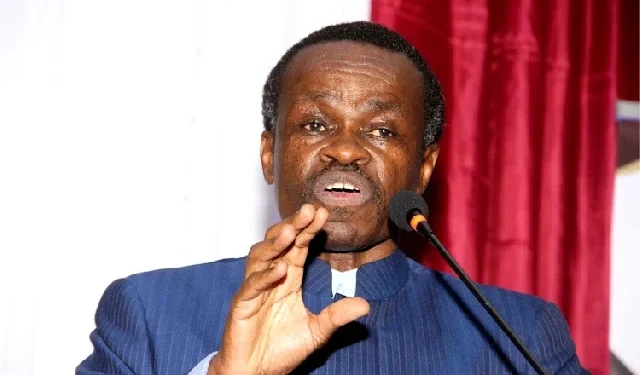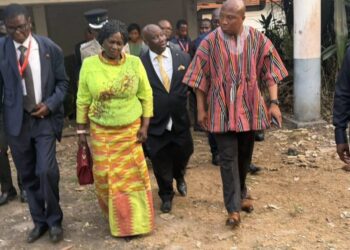Renowned African academic, Prof Patrick Loch Otieno Lumumba, has added his voice to the list of Ghanaians who have criticised the lithium exploration deal reached between the government of Ghana and Barari DV Ghana Limited.
Prof Lumumba, in a TV3 interview, said that the lithium exploration agreement reached by the government of Ghana is consistent with deals signed by African countries for the exploration of the continent’s rich resources where foreigners get more benefits than the citizenry.
He indicated that it is a shame that Ghana and other African countries hastily sign and celebrate deals when they get only about 10 percent of the profit from their own natural resources.
“Africa appears to get the short hand of the stick all the time. If you have a deal where you’re producing the bulk of what is needed by the other person and you’re getting only 10 percent of it, you have got to ask yourself, what is the problem?
“If it is 60 percent, I would begin to understand and it must be time-bound. And it is not only Ghana that finds itself in this situation; many African countries continue to find themselves in this situation. Because we have not developed the technology, because we are too quick to sign on the dotted lines,” he said.
He added, “… It is unfortunate. It is painful when I see some of these things. When we celebrate what we ought not to celebrate. It’s very painful”.
The renowned pan-Africanist called on African countries to put measures in place to make sure that their mineral resources, like lithium, are processed and used on the continent.
“The time is now for Africa to wake up. Under the aegis of the African Continental Free Trade Area and the Africa Agenda 263, I believe we now have enough Africans with the technological know-how to actually use the lithium locally. I believe that Africa can consume what is produced using lithium,” he added.
Pro Lumumba served notice to African leaders that foreign investors who come onto the continent do so because of their own interests and not to make Africa a better place.
“And let me tell you, all these individuals and countries who come to the continent of Africa. do not mean well for us. They are not Good Samaritans. They are bad Samaritans. And the sooner we realize that, the safer we are,“ he stressed.
About the lithium agreement:
The Minister of Lands and Natural Resources, Samuel Abu Jinapor, signed the first-ever lease for the exploitation of lithium in the country on October 19, this year.
This followed Cabinet’s approval of the Green Minerals Policy, which makes it mandatory for prospective holders of leases for lithium and other green minerals to establish a refinery for processing the resource.
Since the granting of the lithium mining lease, some CSOs, individuals and institutions have criticised the deal, describing it as bad for the country.
There have also been calls to grant mining leases through a tender process.
Jinapor, however, defended the government’s position at a state-organised press conference last Thursday.
He was supported by the Chief Executive Officer of the Minerals Commission, Martin Ayisi, and that of the Minerals Income Investment Fund (MIIF), Edward Nana Yaw Koranteng.
Addressing the press conference on December 7, 2023, the lands minister said: “Suffice for me to point out that it is the first time in the history of our country that we have successfully negotiated for 10% royalties for any mineral which is one of the highest for the exploration of any mineral across the world.”
He added, “We have already secured 19% state participation in this mining company with the requirement to scale it up to a minimum of Ghanaian participation through listing on the Ghana Stock Exchange for shares to be made available to Ghanaians and Ghanaian entities.
“What this simply means is that when it is all over, Barari DV Limited, the holder of this mineral right of lithium, Ghanaian and state participation will be 30%, and foreign participation will be a maximum of 70% and this has never happened in the history of our country in respect of any mineral,” he emphasized.
Despite all the backlash that this deal has received, Abu Jinapor said it has good prospects for the country.
“And for the first time in the history of our country, a mineral lease contains provision for the establishment of a refinery and that is value addition and appreciation and this is the first time,” he said.










Discussion about this post